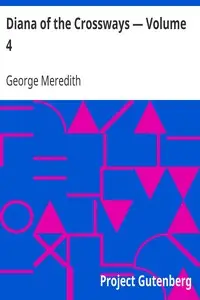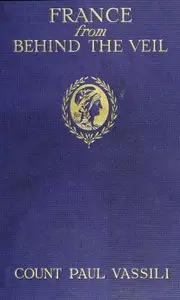"One of Our Conquerors — Volume 4" by George Meredith is a story set in the late 1800s that shows the complex connections between people and the rules of society. The story is centered around Nataly, her husband Victor, and Dartrey Fenellan, with love, faithfulness, and what society expects playing big roles. Nataly is dealing with a lot of emotions, especially when she finds out about a woman connected to Dartrey. The reader can feel the pressure in the air as hidden feelings, jealousy, and surprising news deeply affect Nataly. She struggles with her feelings for Victor and what Dartrey's past means, trying to be a good wife while still having her own dreams and identity. The book kicks off a series of clashes about love, who people are, and the fight to be themselves in a world with so many rules.

One of Our Conquerors — Volume 4
By George Meredith
Amidst societal expectations, a woman is caught between her husband and the secrets of a mysterious figure from the past.
Summary
About the AuthorGeorge Meredith was an English novelist and poet of the Victorian era. At first, his focus was poetry, influenced by John Keats among others, but Meredith gradually established a reputation as a novelist. The Ordeal of Richard Feverel (1859) briefly scandalised Victorian literary circles. Of his later novels, the most enduring is The Egoist (1879), though in his lifetime his greatest success was Diana of the Crossways (1885). His novels were innovative in their attention to characters' psychology, and also portrayed social change. His style, in both poetry and prose, was noted for its syntactic complexity; Oscar Wilde likened it to "chaos illumined by brilliant flashes of lightning". Meredith was an encourager of other novelists, as well as an influence on them; among those to benefit were Robert Louis Stevenson and George Gissing. Meredith was nominated for the Nobel Prize in Literature seven times.
George Meredith was an English novelist and poet of the Victorian era. At first, his focus was poetry, influenced by John Keats among others, but Meredith gradually established a reputation as a novelist. The Ordeal of Richard Feverel (1859) briefly scandalised Victorian literary circles. Of his later novels, the most enduring is The Egoist (1879), though in his lifetime his greatest success was Diana of the Crossways (1885). His novels were innovative in their attention to characters' psychology, and also portrayed social change. His style, in both poetry and prose, was noted for its syntactic complexity; Oscar Wilde likened it to "chaos illumined by brilliant flashes of lightning". Meredith was an encourager of other novelists, as well as an influence on them; among those to benefit were Robert Louis Stevenson and George Gissing. Meredith was nominated for the Nobel Prize in Literature seven times.



















